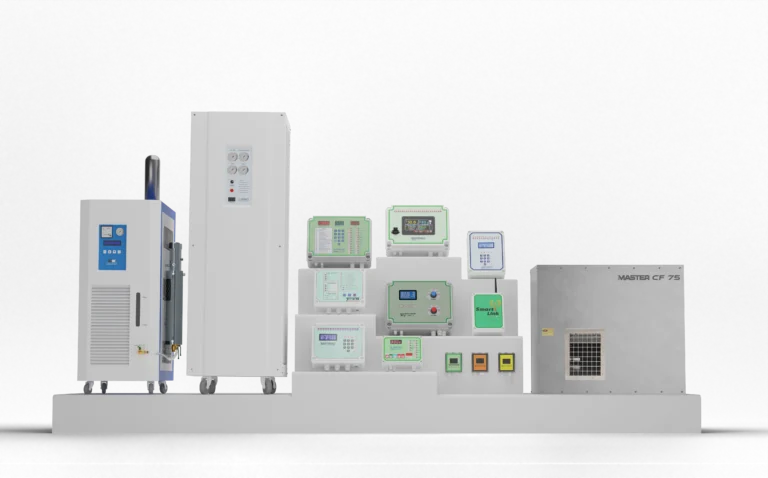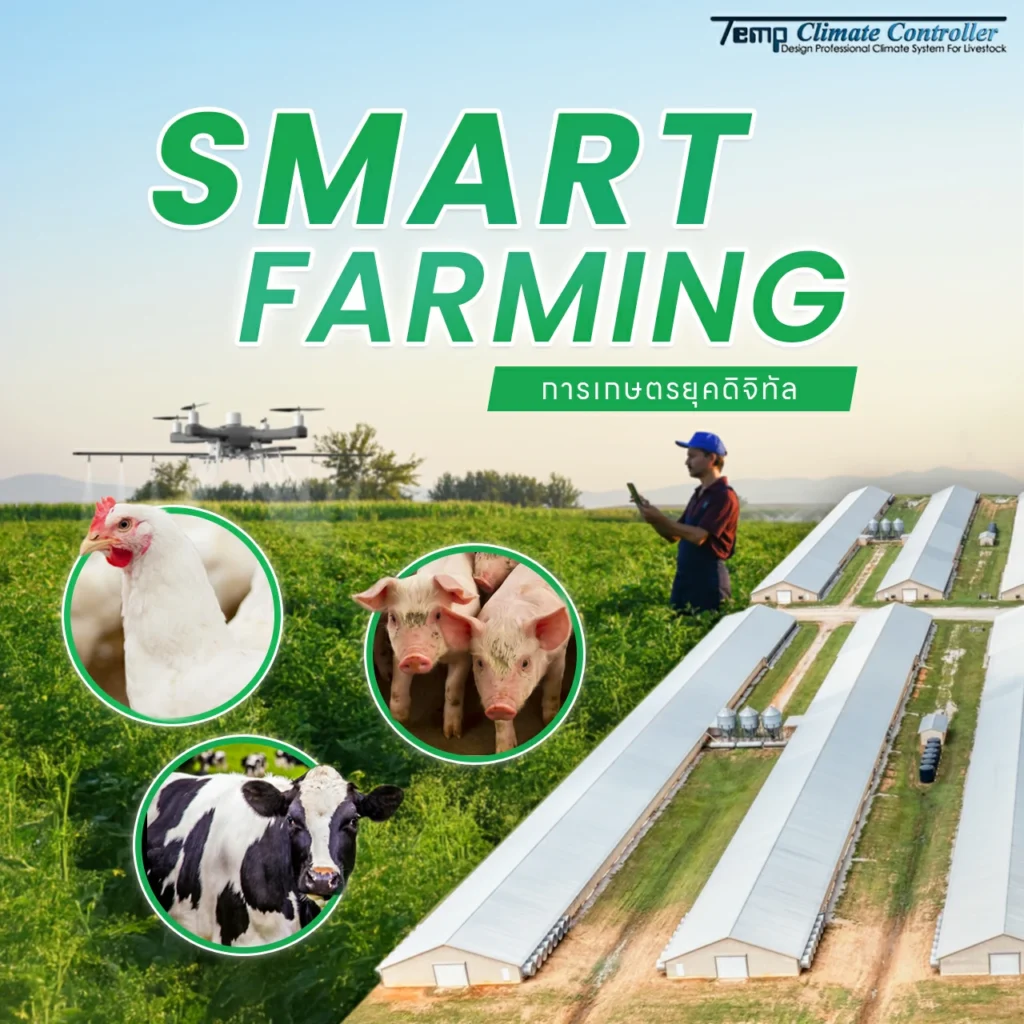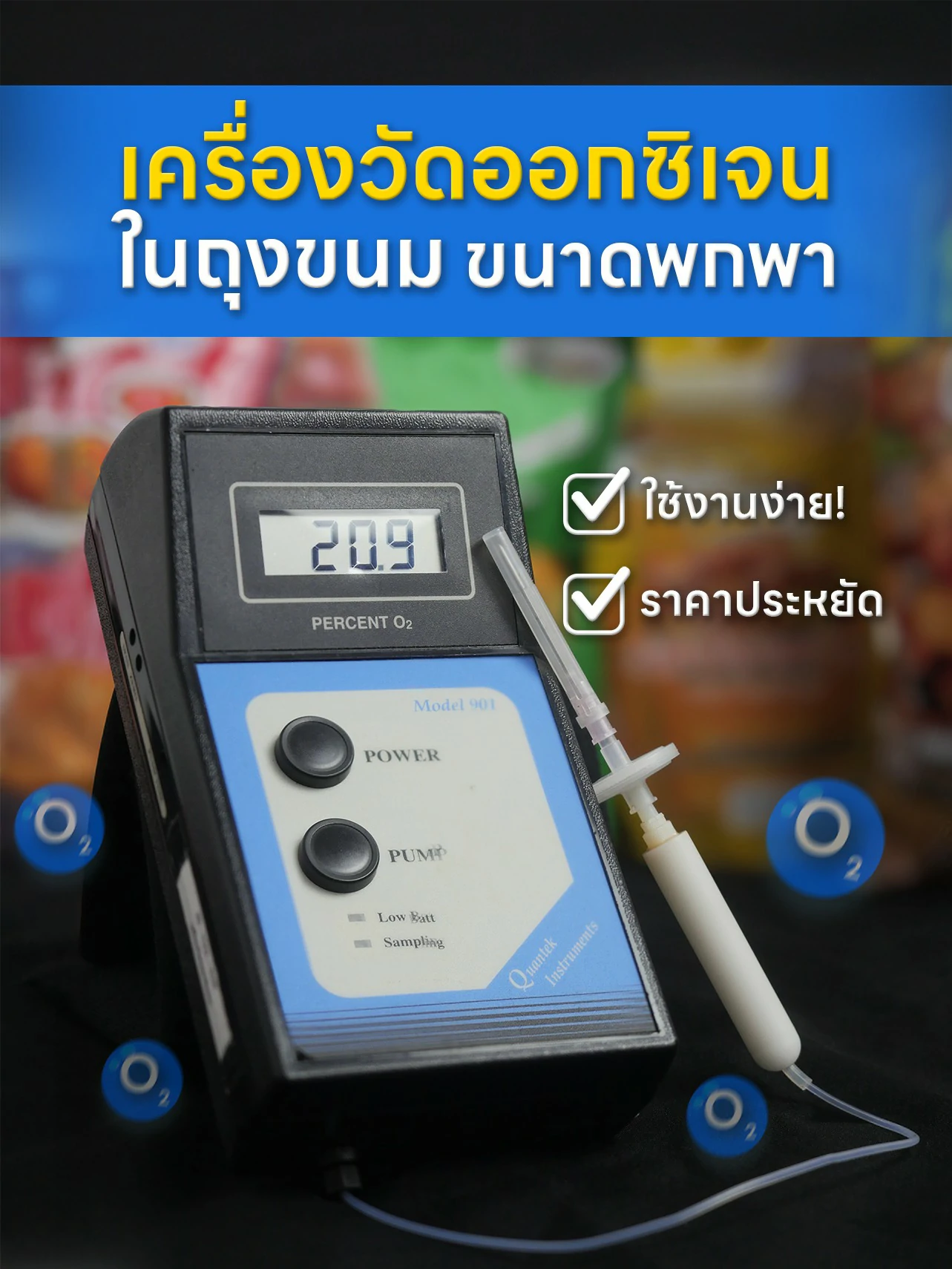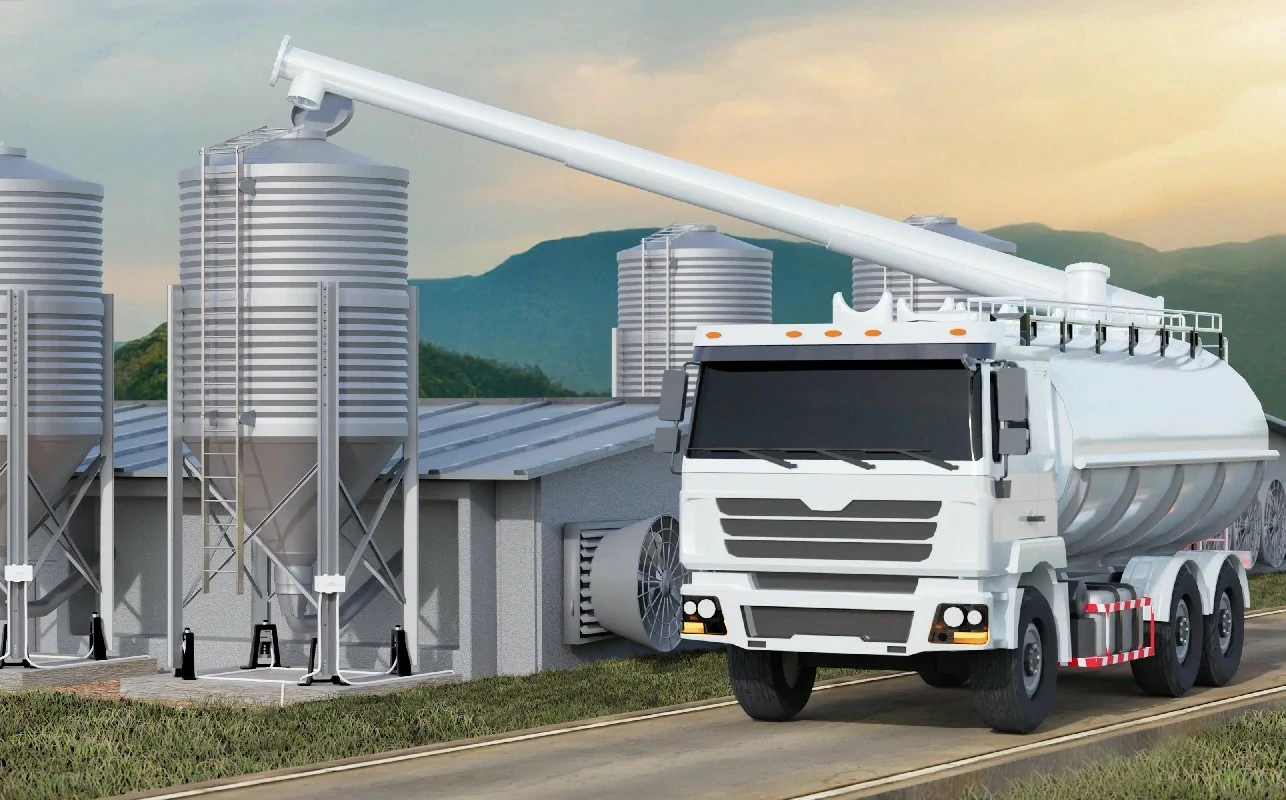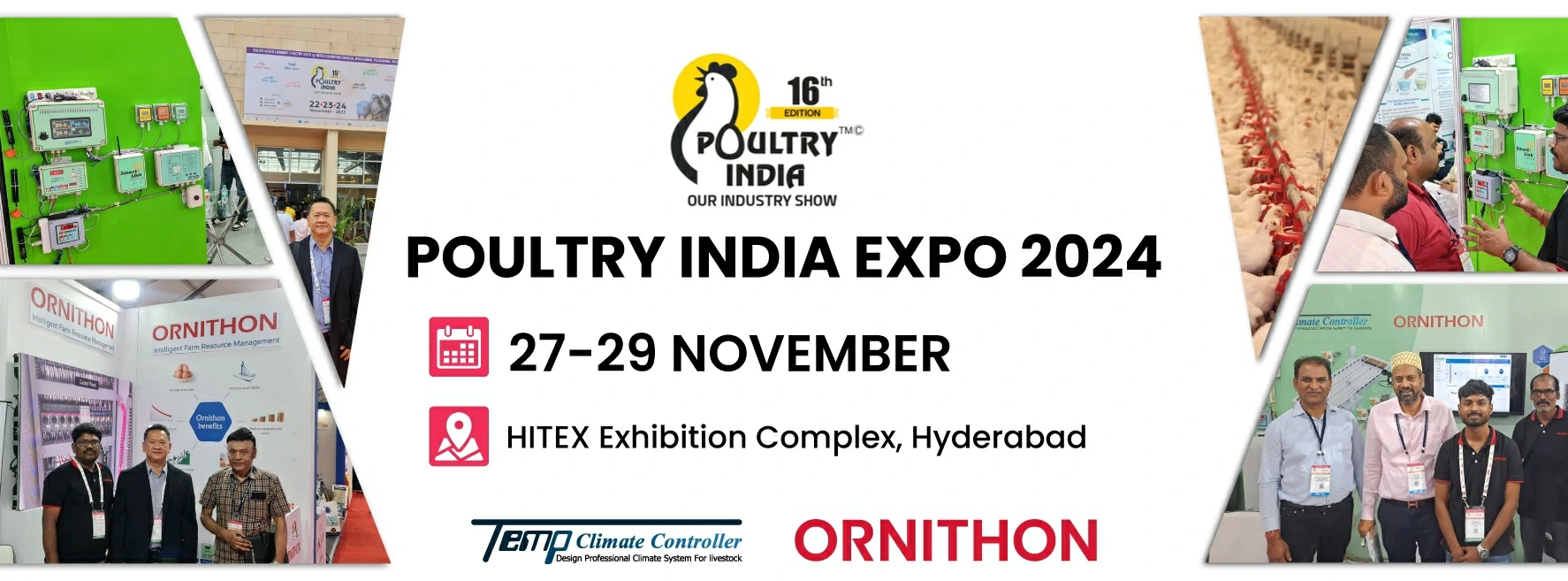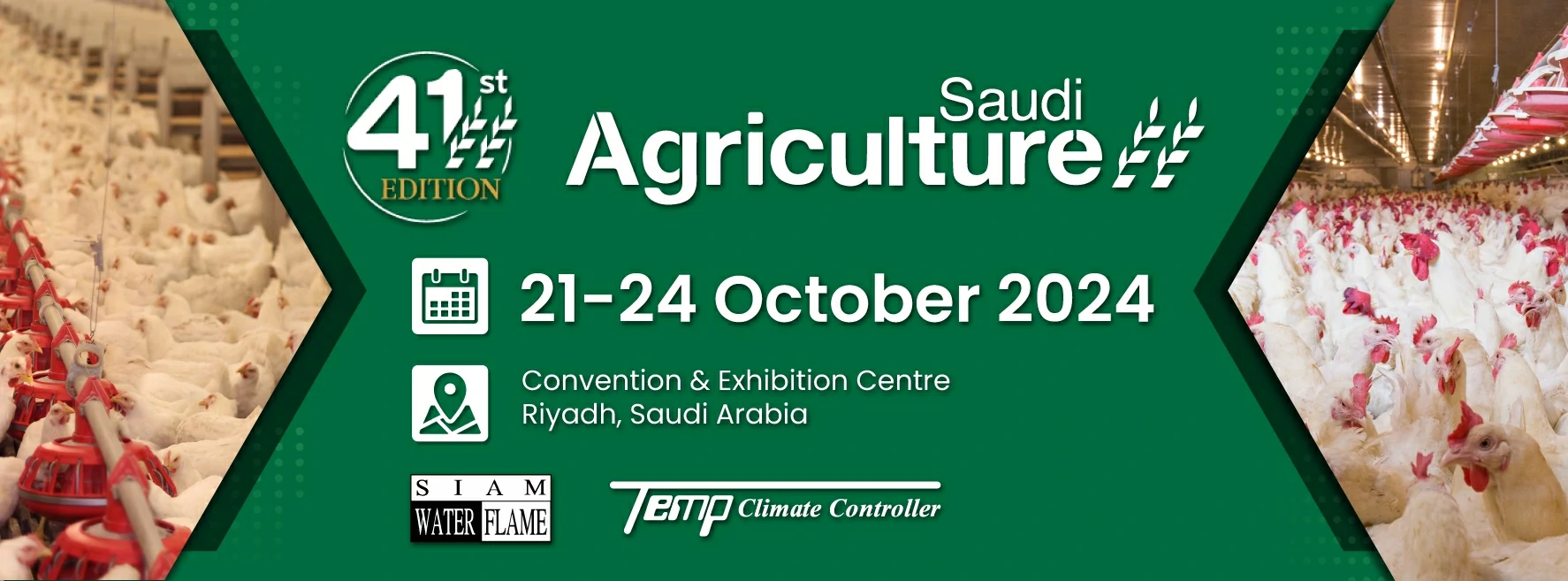Smart Farming When Agriculture Enters the Digital Era
Agriculture has never stopped evolving. From the days when farmers tilled the land with buffaloes, to when machines replaced manual labor, and now, the world is entering the era of Smart Farming—or “intelligent agriculture”.
Here, the value of farming is no longer measured by labor alone, but by the power of data, technology, and automation.
Why is Smart Farming Important?
The challenge for today’s farmers is not just producing more crops or raising more animals, but doing so efficiently, cost-effectively, and consistently, despite rising labor shortages, unpredictable weather, and increasing production costs.
That is why Smart Farming is not merely an innovation—it is a survival tool for modern agriculture.
The Core of Smart Farming
Data-Driven → Decisions based on real data such as soil moisture, temperature, animal growth, and health conditions.
Automation → Systems that work on their own, easing farmers’ workload—for example, climate controllers that manage fans, water pumps, feeding systems, and lighting automatically.
Connectivity → Everything is connected through IoT and the internet, allowing farmers to monitor and manage their farms anytime, anywhere.
With these, farmers can control costs precisely, reduce risks, and increase sustainable yields.
Smart Farming in Livestock Production
While many think of Smart Farming as crop-related, livestock farming in closed houses is an equally clear example.
Animals don’t just need food—they need the right environment at all times.
Think about it…
Excessive heat, poor ventilation, or imbalanced humidity can stress animals, reduce feed intake, cause illness, and stunt growth.
That is why climate control in livestock houses has become the key to Smart Farming.
Temp Climate Controller: The Power Behind Smart Farms
For farms to operate efficiently, farmers need a reliable assistant. The Temp Climate Controller was designed precisely for this purpose:
Automatically controls fans and ventilation based on temperature, humidity, carbon dioxide, and ammonia levels.
Adjusts according to real conditions—not just fixed settings.
Reduces risks of human error.
Keeps animals in their comfort zone, ensuring faster growth, better health, and higher quality.
In short, the Temp Climate Controller is not just a controller—it is the “brain” of the modern livestock house, transforming ordinary farms into true Smart Farms.
#SmartFarming #tempclimatecontroller #farm #temp
Smart Farming When Agriculture Enters the Digital Era
Agriculture has never stopped evolving. From the days when farmers tilled the land with buffaloes, to when machines replaced manual labor, and now, the world is entering the era of Smart Farming—or “intelligent agriculture”.
Here, the value of farming is no longer measured by labor alone, but by the power of data, technology, and automation.
Why is Smart Farming Important?
The challenge for today’s farmers is not just producing more crops or raising more animals, but doing so efficiently, cost-effectively, and consistently, despite rising labor shortages, unpredictable weather, and increasing production costs.
That is why Smart Farming is not merely an innovation—it is a survival tool for modern agriculture.
The Core of Smart Farming
Data-Driven → Decisions based on real data such as soil moisture, temperature, animal growth, and health conditions.
Automation → Systems that work on their own, easing farmers’ workload—for example, climate controllers that manage fans, water pumps, feeding systems, and lighting automatically.
Connectivity → Everything is connected through IoT and the internet, allowing farmers to monitor and manage their farms anytime, anywhere.
With these, farmers can control costs precisely, reduce risks, and increase sustainable yields.
Smart Farming in Livestock Production
While many think of Smart Farming as crop-related, livestock farming in closed houses is an equally clear example.
Animals don’t just need food—they need the right environment at all times.
Think about it…
Excessive heat, poor ventilation, or imbalanced humidity can stress animals, reduce feed intake, cause illness, and stunt growth.
That is why climate control in livestock houses has become the key to Smart Farming.
Temp Climate Controller: The Power Behind Smart Farms
For farms to operate efficiently, farmers need a reliable assistant. The Temp Climate Controller was designed precisely for this purpose:
Automatically controls fans and ventilation based on temperature, humidity, carbon dioxide, and ammonia levels.
Adjusts according to real conditions—not just fixed settings.
Reduces risks of human error.
Keeps animals in their comfort zone, ensuring faster growth, better health, and higher quality.
In short, the Temp Climate Controller is not just a controller—it is the “brain” of the modern livestock house, transforming ordinary farms into true Smart Farms.
#SmartFarming #tempclimatecontroller #farm #temp
Smart Farming When Agriculture Enters the Digital Era
Agriculture has never stopped evolving. From the days when farmers tilled the land with buffaloes, to when machines replaced manual labor, and now, the world is entering the era of Smart Farming—or “intelligent agriculture”.
Here, the value of farming is no longer measured by labor alone, but by the power of data, technology, and automation.
Why is Smart Farming Important?
The challenge for today’s farmers is not just producing more crops or raising more animals, but doing so efficiently, cost-effectively, and consistently, despite rising labor shortages, unpredictable weather, and increasing production costs.
That is why Smart Farming is not merely an innovation—it is a survival tool for modern agriculture.
The Core of Smart Farming
Data-Driven → Decisions based on real data such as soil moisture, temperature, animal growth, and health conditions.
Automation → Systems that work on their own, easing farmers’ workload—for example, climate controllers that manage fans, water pumps, feeding systems, and lighting automatically.
Connectivity → Everything is connected through IoT and the internet, allowing farmers to monitor and manage their farms anytime, anywhere.
With these, farmers can control costs precisely, reduce risks, and increase sustainable yields.
Smart Farming in Livestock Production
While many think of Smart Farming as crop-related, livestock farming in closed houses is an equally clear example.
Animals don’t just need food—they need the right environment at all times.
Think about it…
Excessive heat, poor ventilation, or imbalanced humidity can stress animals, reduce feed intake, cause illness, and stunt growth.
That is why climate control in livestock houses has become the key to Smart Farming.
Temp Climate Controller: The Power Behind Smart Farms
For farms to operate efficiently, farmers need a reliable assistant. The Temp Climate Controller was designed precisely for this purpose:
Automatically controls fans and ventilation based on temperature, humidity, carbon dioxide, and ammonia levels.
Adjusts according to real conditions—not just fixed settings.
Reduces risks of human error.
Keeps animals in their comfort zone, ensuring faster growth, better health, and higher quality.
In short, the Temp Climate Controller is not just a controller—it is the “brain” of the modern livestock house, transforming ordinary farms into true Smart Farms.
#SmartFarming #tempclimatecontroller #farm #temp
